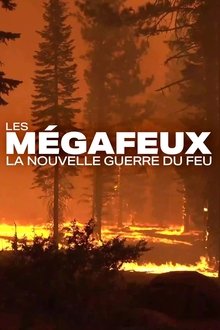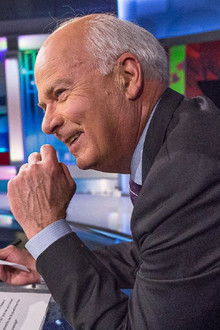This 1962 documentary tells the story of a fire that started on November 5th, 1961 in Bel Air, Los Angeles, and over the course of three days destroyed 484 homes, damaged 190 others, and burned over 16,000 acres. The $30 million disaster led to new laws by the city to eliminate wood shingle roofs and to clear dry brush away from homes. The film was produced by the Los Angeles Fire Department and is narrated by actor William Conrad
Related Movies

Chlorine and the Firefighter (1974)
This 1974 film is dedicated by the Chlorine Institute to the public interest. It is specifically intended to assist firefighters and other emergency services. The techniques demonstrated are appropriate for emergency use; different circumstances might require modified or additional procedure. The information is drawn from sources believed to be reliable. The Institute, its members any organizations cooperating in the development of this film, jointly or severally, cannot be responsible for how the information is used and must make this legal disclaimer. This is a 1960s era, color movie about Chlorine and emergency workers… specifically, firefighters. The film is intended to show firefighters what chlorine is, what a chlorine emergency might involve, how a company can plan ahead and how an emergency can be handled safely.
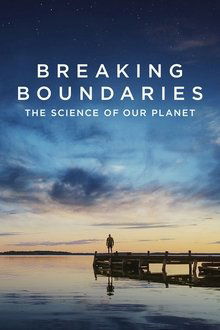
Breaking Boundaries: The Science of Our Planet (2021)
David Attenborough and scientist Johan Rockström examine Earth's biodiversity collapse and how this crisis can still be averted.

Desynchronized (2021)
Recent studies show that insects are in decline across the globe and there may be a direct connection between the current climate crisis and these declining populations. DESYNCHRONIZED focuses on Pope Canyon Queens, a beekeeping and queen breeding company in Northern California. Pope Canyon Queens is currently trying to rebuild after the 2020 LNU Lightning Complex fires destroyed their farm, shop, and half of their hives. Their crucial work to breed honey bee queens with stronger genes fortifies beekeepers' hives across the country while they face the effects of climate change and unregulated industries. Dr. Nicholas Teets, PhD Entomology, explains how shifts in phenology are predicted to cause bigger issues. Howard Goldstein, Senior Forest Ecologist at the Prospect Park Alliance explores how community gardens and green spaces in large metropolitan areas may help insect populations recover from loss of habitat and food scarcity.

The Fire Triangle (1962)
"The Fire Triangle" presents different types of fires (electrical, chemical, etc.) and firefighting techniques, while exploring the "triangle" conception of fire, consisting of heat, fuel and oxygen. Shot in Los Angeles with the cooperation of the LAFD, it dates to 1962.

High Rise Building Problems (1973)
This is a 1970’s era, color movie discussing problems fire departments have with high rise buildings. It opens with a massive high-rise tower with a ladder next to it and was produced with the assistance of the National Fire Protection Association and Fire Prevention through Films. Producer is Julian Olansky and the New Haven Fire Department in New Haven, Connecticut.

Condemned (1963)
“Condemned” (c.1960s) is a color fire prevention film presented by Fire Prevention Through Films. It was produced by Julian Olansky in cooperation with fire departments across Connecticut (Andover, Eagleville, Hebron, Mansfield, Willimantic, University of Connecticut Fire Dept.). The film warns against the dangers of fire and not having a proper fire safety plan. The film starts out by focussing heavily on the risks associated with carelessly smoking cigarettes at home before showing other scenarios that can turn deadly.
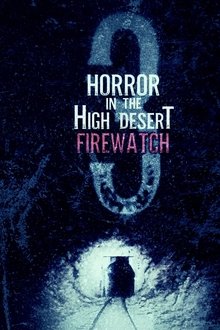
Horror in the High Desert 3: Firewatch (2024)
As a wildfire bears down on the opposite side of the state, Oscar Mendoza, armed with a secret, takes advantage of the distraction and journeys to Northeastern Nevada in search of missing outdoorsman Gary Hinge's last known whereabouts.

The Arrival of a Train at La Ciotat (1896)
A group of people are standing along the platform of a railway station in La Ciotat, waiting for a train. One is seen coming, at some distance, and eventually stops at the platform. Doors of the railway-cars open and attendants help passengers off and on. Popular legend has it that, when this film was shown, the first-night audience fled the café in terror, fearing being run over by the "approaching" train. This legend has since been identified as promotional embellishment, though there is evidence to suggest that people were astounded at the capabilities of the Lumières' cinématographe.

Das Dorf der Freundschaft (2001)
A German Documentary about the “village of friendship” that was created by American Veteran George Mizo to help the Vietnamese kids suffering from the Vietnam War.
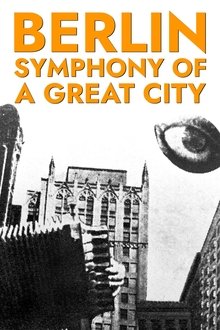
Berlin: Symphony of a Great City (1927)
A day in the city of Berlin, which experienced an industrial boom in the 1920s, and still provides an insight into the living and working conditions at that time. Germany had just recovered a little from the worst consequences of the First World War, the great economic crisis was still a few years away and Hitler was not yet an issue at the time.

Dubrovnik (1952)
A film describing the political history of Dubrovnik and the history of its architecture, painting, literature and science until the end of Republic of Ragusa.

The Beauty of the Adriatic (1962)
The Beauty of the Adriatic was created as a promotional tourist film, but through its unusual and even bizarre formal devices it overcomes the promotional function. The narrator of the film is constantly communicating with the viewer, exclaims and inserts jokes, and we also see him in the film as a guide entertaining us with various gestures and movements. In the film there are also interspersed humorous animated scenes, an interview with Hamlet, poetic sequences and stylized scenes such as one where the camera is "looking for" the lost guide.

Dubrovnik Summer Festival (1969)
Zvonimir Berković decided to present the Dubrovnik Summer Festival on film in an imaginative manner. He set scenes from the most popular plays of the Festival across various locations in Dubrovnik, so Pero Kvrgić acts Negromant's monologue from "Dundo Maroje" while interacting with vendors on the local marketplace, and in the dreamy atmosphere of Lokrum forest fairies are performing a scene from Držić's "Grižula".
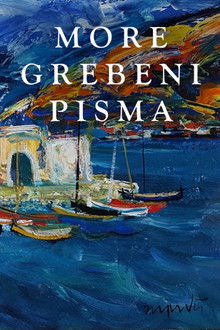
The Sea, Reefs, Letters (1987)
The intellectual and the sensual are combined in this essay presentation of the work of the painter Ivo Vojvodić from Dubrovnik. Through the presentation of three frequent motifs of Vojvodić's painting - the sea, reefs and letters - Berković touches upon the emigratory fate of Vojvodić's family in desire for a home and the Ragusan ideal of freedom.
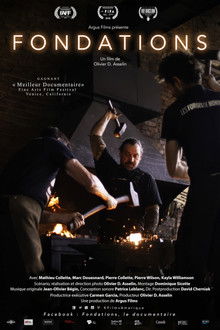
Fondations (2019)
Mathieu Collette, a passionate blacksmith, renovates an abandoned heritage building belonging to the City of Montreal to create a blacksmithing school. Sixteen years later, after turning the building into an internationally renowned center for the transmission of living heritage, Mathieu is threatened with eviction for obscure administrative reasons, in the very year of Montreal's 375th anniversary. What could possibly justify putting one of Quebec's last blacksmiths out on the street, as the bearer of an unparalleled social and heritage project? Filmed over several years, this documentary traces Forges de Montréal's fight against the disappearance of a part of our collective memory.

Shaka (2018)
Showcasing breathtaking footage of mountains and waves around the world, Shaka follows snowboarding world champion and renowned athlete Mathieu Crepel as he faces the biggest challenge of his life: to surf the legendary waves of Jaws Beach, Hawaii.
